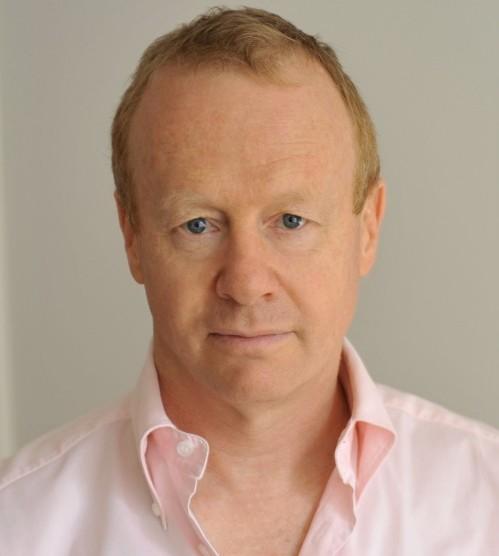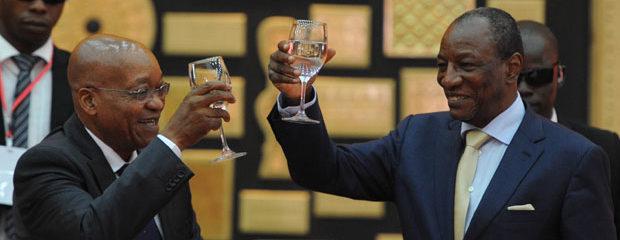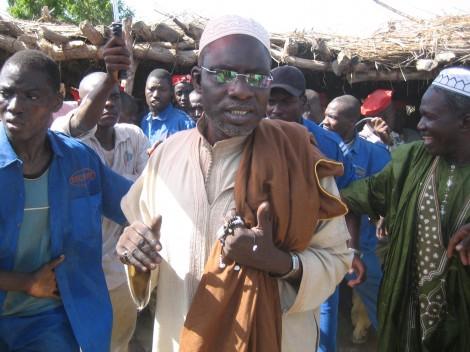South Africa 2014: ANC victory cannot obscure big gains for Democratic Alliance – By Martin Plaut

 “ANC wins yet another landslide” – was the RAS take on the South African election on Friday. A catchy headline but not entirely accurate.
“ANC wins yet another landslide” – was the RAS take on the South African election on Friday. A catchy headline but not entirely accurate.
Certainly no-one can argue with the figures. The ANC is to be congratulated for winning 62.15% of the vote. But nor should one ignore the achievement of the Democratic Alliance (DA) in receiving the backing of 22.23% of the electorate.
More than one in five South Africans now supports the DA. The majority of these are black citizens – African, Coloured and Indian men and women who have experienced life under the ANC and found it wanting.
The DA’s leader, Helen Zille estimated that roughly 760,000 black Africans voted for her party. Put another way, the DA received more backing from black Africans than the Inkatha Freedom Party, National Freedom Party, Pan Africanist Congress and United Christian Democratic Party combined.
Even more importantly, this election saw the DA transformed from a predominantly White and Coloured party into one that draws its support from across the population. Its leadership – including Mmusi Maimaneand Patricia de Lille (and until recently Lindiwe Mazibuko) – is more reflective of South Africa’s racial profile than any other party.
But, having worked in the DA’s headquarters for the past two months, I have been able to observe at first-hand how difficult this has been and how uneven the playing field really is.
Consider the following:
· The state broadcaster is in the hands of, and tightly controlled by the ANC and its supporters. As the former editor of the Mail and Guardian, Professor Anton Harber put it, the “SABC is key weapon in ANC’s arsenal.” Its reach via radio and television into the rural areas of South Africa is unparalleled and blatantly biased.
· Just prior to the election an independent NGO, the Community Agency for Social Enquiry (CASE), put out a compelling report about the misuse of state resources by the ANC to further its election. CASE detailed numerous instances of threats and intimidation the party quietly employed to secure its support. The 120 page report concluded that: “During the research process it emerged that competition for votes involved not only intimidation, but also other forms of manipulation of the voters and the electoral process. It overwhelmingly pointed to the ANC as the primary source of intimidation in South Africa.”
· Finally it should be pointed out that the Independent Electoral Commission, which is required by the Constitution to ensure a “free and fair” election, interprets its mandate so narrowly that it fails to address the issues raised by CASE. It also takes no action to challenge irregularities taking place in the immediate vicinity of its polling stations. I spent election day in the townships and informal settlements around Cape Town – places like Khayelitsha, Browns farm, Crossroads, Phillipi and Kosovo. The Electoral Commission had decreed that there was to be no campaigning after midnight on the day of the election. Yet time and again I witnessed ANC cavalcades, speakers blaring, followed by hundreds of chanting supporters, right outside the polling stations. When raised with both the police and the IEC staff they shrugged, saying “what can we do?”
If this was taking place on the edge of a major conurbation, like Cape Town, what took place in the rural areas, far away from the media and the attention of the international observers?
Finally I would suggest that this election needs to be seen in a longer-term perspective. Liberation movements like the ANC tend to decline gradually, but eventually the population loses patience with its “˜saviours’.
The rapid success of Julius Malema’s Economic Freedom Fighters is just one sign of this taking place. But the splits within the trade union movement are far more significant. If the metalworkers union (NUMSA) – the largest union in the country – decides to form the nucleus of a genuine left-wing alternative to the ANC then this process could accelerate.
What is clear from the 2014 election is that the political scene is both much the same and considerably transformed. The ANC will remain in power, still faced with an uninspiring leader in Jacob Zuma. It will have to deal with his now notorious penchant for helping himself to state assets, as seen in the Gupta wedding or in the lavish spending on his villa at Nkandla. The DA emerges re-invigorated, having won over 4 million votes and with substantially more MPs in the new parliament. The next five years are likely to see fascinating changes in the South African political scene.
Martin Plaut is Senior Fellow, Institute of Commonwealth Studies. He is author of Who Rules South Africa?





